Despite challenges, Iran-P4+1 talks in Vienna on right track: IAEA chief
The director general of the International Atomic Energy Agency (IAEA) says despite certain challenges, the ongoing talks between Iran and the P4+1 group of countries in the Austria capital of Vienna on the removal of sanctions and revival of the 2015 agreement are on the right track.
In an interview with Saudi-owned al-Arabiya news channel on Saturday, Rafael Grossi added that it would be clear within the next few days whether the Vienna negotiations between Iran and the five remaining parties to the deal, officially known as the Joint Comprehensive Plan of Action (JCPOA), would result in an outcome.
It is complicated but not impossible to reach an agreement with Tehran within the next days, he said.
The IAEA chief emphasized that no agreement has been reached yet between the parties to the Vienna talks but they have not given up hope to achieve a deal.
There are currently difficulties which would continue, but the sides must work to solve them one by one, he said.
The UN nuclear agency added that the parties to the Vienna talks can reach an agreement only if all sides demonstrate cooperation and Iran returns to its compliance with the obligations as per the JCPOA .
He noted that further consultations between Iran and the P4+1 group of countries would reduce tensions and bring their views closer to each other.
The IAEA chief said the agency has scaled up its efforts to help the parties in the Vienna talks reach an agreement and remain committed to it, urging all sides to be patient to find a diplomatic solution.
He said the political-level talks are currently underway to determine the sides' demands, adding that the most important question at the current stage is whether a return to the JCPOA is possible.
Elsewhere in his remarks, Grossi said the agency is concerned about the existence of undeclared nuclear material in Iran’s sites and called on the country to provide the watchdog with responses to its questions and ambiguities.
He also asked Iran to give full access to the IAEA's monitoring equipment in the country's nuclear facilities, noting that no agreement would be reached without cooperation of all parties.
Former US president Donald Trump unilaterally left the JCPOA in May 2018 and re-imposed the anti-Iran sanctions that the deal had lifted. He also placed additional sanctions on Iran under other pretexts not related to the nuclear case as part of his “maximum pressure” campaign.
Following a year of strategic patience, Iran decided to let go of some of the restrictions on its nuclear energy program, resorting to its legal rights under the JCPOA, which grants a party the right to suspend its contractual commitments in case of a non-performance by the other side.
The US administration of President Joe Biden had voiced a willingness to compensate for Trump’s mistake and rejoin the deal, but it has retained the sanctions as leverage.
Envoys from Iran and the P4+1 group of countries — Britain, France, Russia, and China plus Germany — have been holding negotiations in the Austrian capital for roughly 10 months in a bid to resurrect the JCPOA.
The eighth round of the talks has been put on pause as diplomats returned to their capitals for consultations.
In a phone call with his Japanese counterpart Hayashi Yoshimasa on Thursday, Iranian Foreign Minister Hossein Amir-Abdollahian reiterated Tehran’s readiness to reach a “lasting, reliable” agreement with the P4+1 group of countries during the negotiations in Vienna.
VIDEO | Press TV's news headlines
Trump administration 'turning against entire ecosystem of human rights'
VIDEO | Leader meets Qur'an reciters, teachers on first day of Ramadan
Two killed, several injured in Israeli strike on refugee camp in Lebanon
US Supreme Court strikes down swath of Trump global tariffs
Tehran says US has not sought zero enrichment, warns war hawks pushing for ‘catastrophic war’
Iran ‘serious’ on achieving a ‘fair’ deal with US, Araghchi tells Lavrov
Trump administration gives ICE broader powers to detain legal refugees


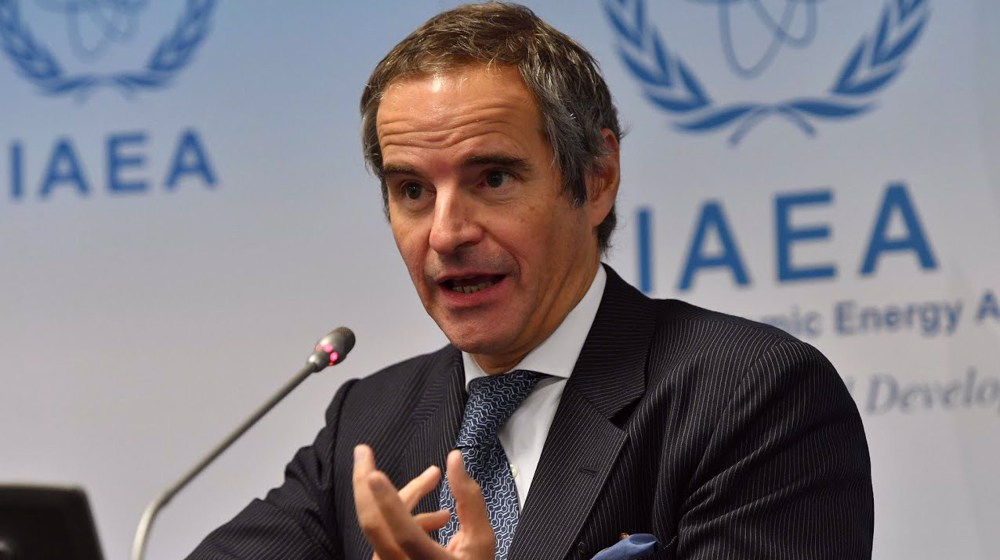
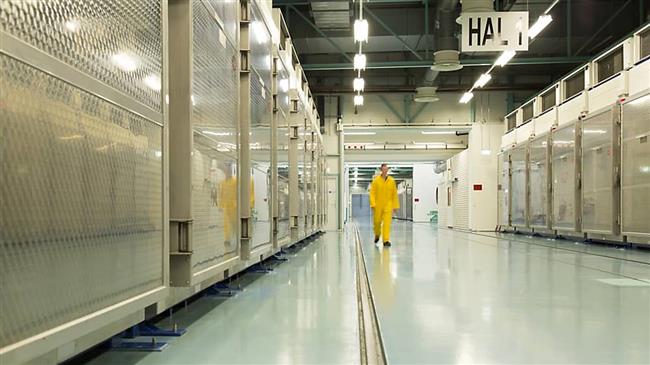

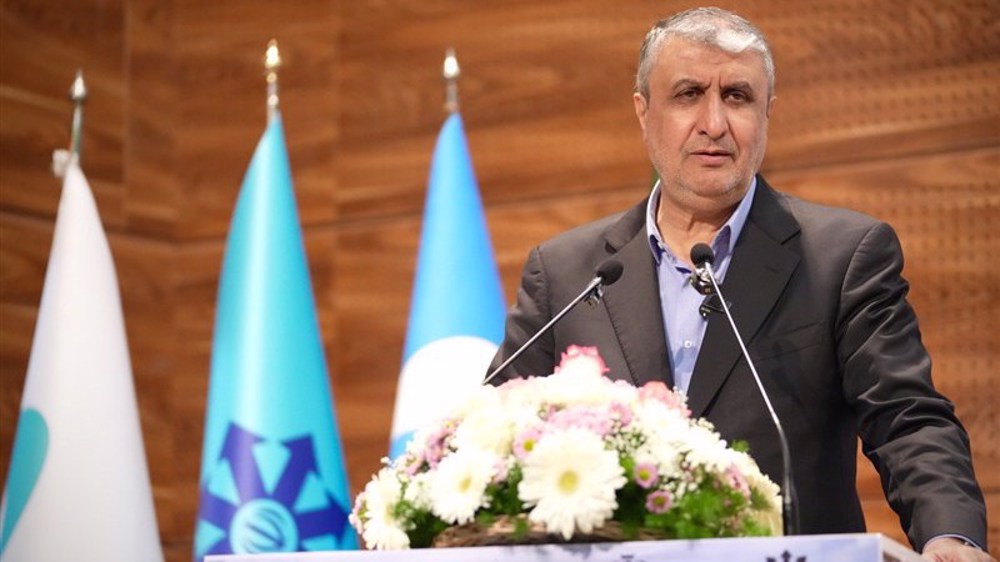
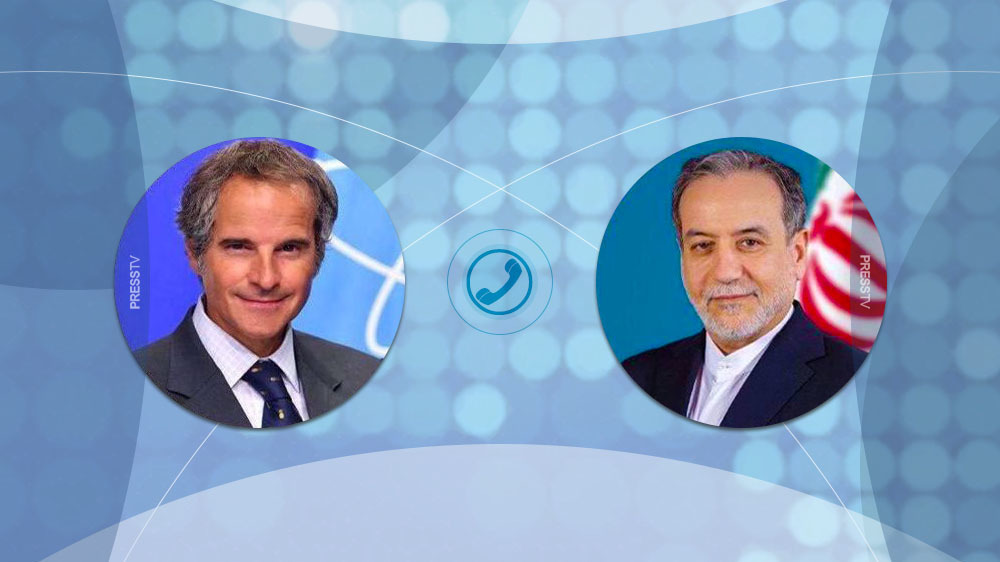
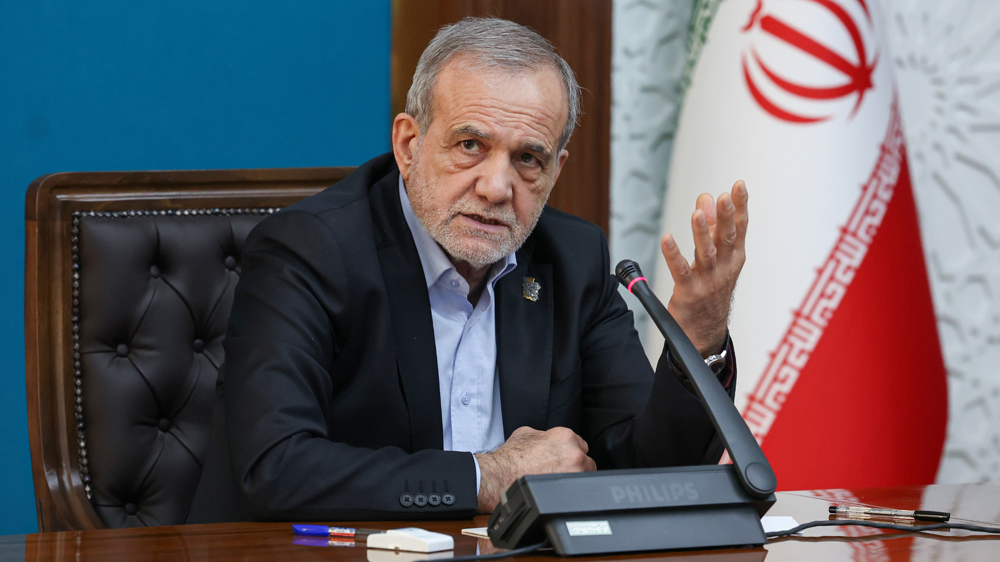




 This makes it easy to access the Press TV website
This makes it easy to access the Press TV website